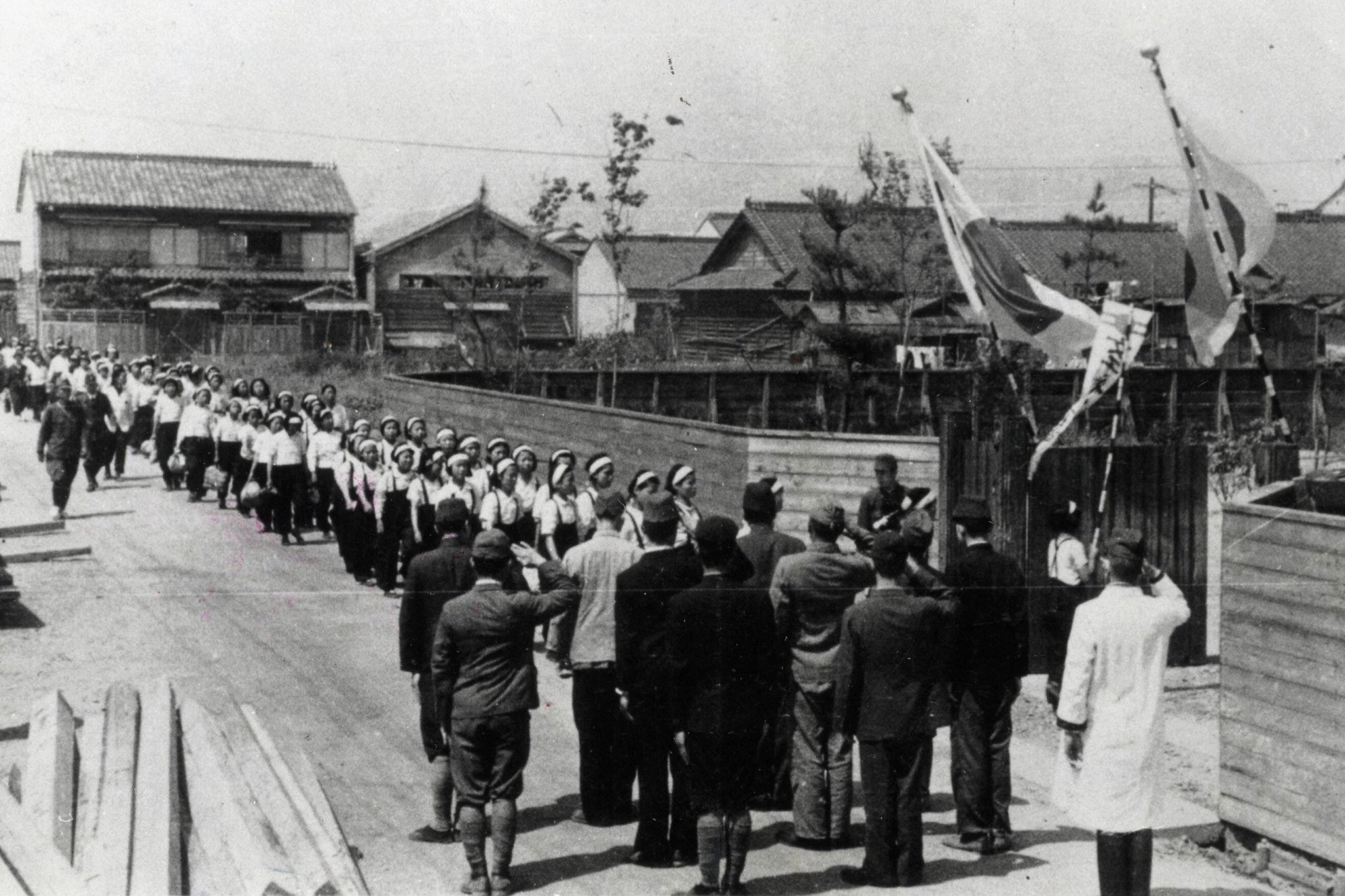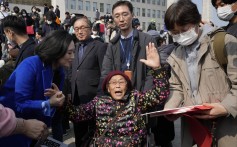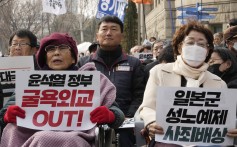Critics say Hitachi Zosen’s depositing of funds earmarked for forced labour compensation with a Korean court breaks with Japan’s position on the issue
Tokyo continues to instruct Japanese companies not to compensate claimants – even if it one day means the seizure of their assets in South Korea
Julian Ryall
SCMP
Published: 4 Jan, 2024
Published: 4 Jan, 2024
A major Japanese company has been accused of “betraying the nation” after transferring funds earmarked as compensation for a victim of forced labour to a South Korean court, in defiance of a government directive.
Hitachi Zosen Corp, an Osaka-based industrial and engineering firm, lost a compensation lawsuit in 2019 brought by an unnamed former labourer who was requisitioned during Japan’s colonial control of the Korean peninsula, between 1910 and the end of World War II in 1945.
The company, which was set up in 1881, built a variety of ships for the Japanese military immediately before and during the war, including minesweepers, landing craft and transport submarines.

An undated archive picture from a South Korean newspaper shows Koreans being marched to work under surveillance of Japanese soldiers during Japan’s colonial rule of the Korean peninsula between 1910 and 1945.
Photo: Dong-A Ilbo via AFP
After losing the case, Hitachi Zosen deposited about 6.6 million yen (US$46,230) with the court, the Yomiuri newspaper reported, as a security to prevent the seizure and liquidation of company assets in South Korea to compensate the former labourer – even though appeals were ongoing.
South Korean’s Supreme Court last week upheld the lower court’s ruling and ordered Hitachi Zosen to pay the plaintiff 50 million won (US$38,150). With all legal challenges now exhausted, the plaintiff has indicated that he intends to collect the funds soon, his lawyer said.
The top court also recently ordered two more Japanese companies – Mitsubishi Heavy Industries Ltd and Nippon Steel Corp – to compensate workers for forced labour, after turning down their appeals.
South Korean’s Supreme Court last week upheld the lower court’s ruling and ordered Hitachi Zosen to pay the plaintiff 50 million won (US$38,150). With all legal challenges now exhausted, the plaintiff has indicated that he intends to collect the funds soon, his lawyer said.
The top court also recently ordered two more Japanese companies – Mitsubishi Heavy Industries Ltd and Nippon Steel Corp – to compensate workers for forced labour, after turning down their appeals.
Korean courts have previously ruled that the assets of Japanese companies can be seized to compensate former forced labourers, but Hitachi Zosen is the only company known to have transferred funds. This is despite the Japanese government repeatedly stating that the Korean courts were ruling in contravention of a 1965 treaty that normalised diplomatic relations between the two countries and saw Tokyo pay US$500 million in compensation to Seoul for its decades of often brutal colonial occupation.
Japan has consistently asserted that the lump sum covered all claims against the country or its companies, but Korean courts have ruled that individuals do have the legal right to sue firms that employed them as forced labourers.
Since Yoon Suk-yeol became South Korea’s president in May 2022, bilateral relations have improved dramatically and the two governments have held talks on the creation of a foundation that would accept voluntary donations from Japanese and Korean companies to be disbursed to former labourers
But the proposal has been rejected by former forced labourers and their supporters in South Korea, who say the redress should be made by the Japanese companies directly and be accompanied by a clear apology for their suffering.
South Korea, instead of Japanese firms, to compensate families of WWII forced labour victims
The Japanese government continues to instruct domestic companies not to provide compensation to claimants, even if it means their property and assets in South Korea are seized and liquidated. Though this has yet to happen, if it did it would likely cause another major rift between the two countries.
Critics of the Korean courts’ rulings say Hitachi Zosen’s decision to transfer funds weakens Japan’s position and sets a bad precedent for other companies.
“It appears that Hitachi Zosen has gone against the government’s directions and this can only be bad for other companies as it’s a precedent that is negative for their cases,” said Yoichi Shimada, a conservative academic at Fukui Prefectural University.
“If this is accurate, then Hitachi Zosen is betraying the nation, the government and the other companies.”
If this is accurate, then Hitachi Zosen is betraying the nation, the government and the other companiesYoichi Shimada, conservative academic
After the initial court rulings, a number of firms had considered paying the Korean plaintiffs to protect their business interests in South Korea, Shimada said, but the government intervened to convince them to resist the demands.
“Hitachi Zosen has broken that unity and that betrayal is deeply regrettable,” he said.
The Korean courts were packed with left-leaning judges appointed by former President Moon Jae-in, Shimada claimed, adding that if Japanese firms’ assets were ordered to be sold for compensation then Tokyo “will have no choice but to retaliate by imposing some sanctions on Korea”.
In South Korea, the reaction has been more positive, with Kim Sang-woo, a former politician with the left-leaning South Korean Congress for New Politics and now a board member at the Kim Dae-jung Peace Foundation, calling the court’s decision a step forward.
“It’s good to hear that the courts are making their own judgments in these cases rather than being pressured into a decision by their own government or another government,” he said.
“I think Yoon really is trying to resolve this issue, but Japan is not doing so much to help the situation … That may be because Prime Minister [Fumio] Kishida is under so much pressure from every quarter that he can’t afford to upset anyone any more.”

Julian Ryall never expected to still be in Japan 24 years after he first arrived, but he quickly realised its advantages over his native London. He lives in Yokohama with his wife and children and writes for publications around the world.



No comments:
Post a Comment